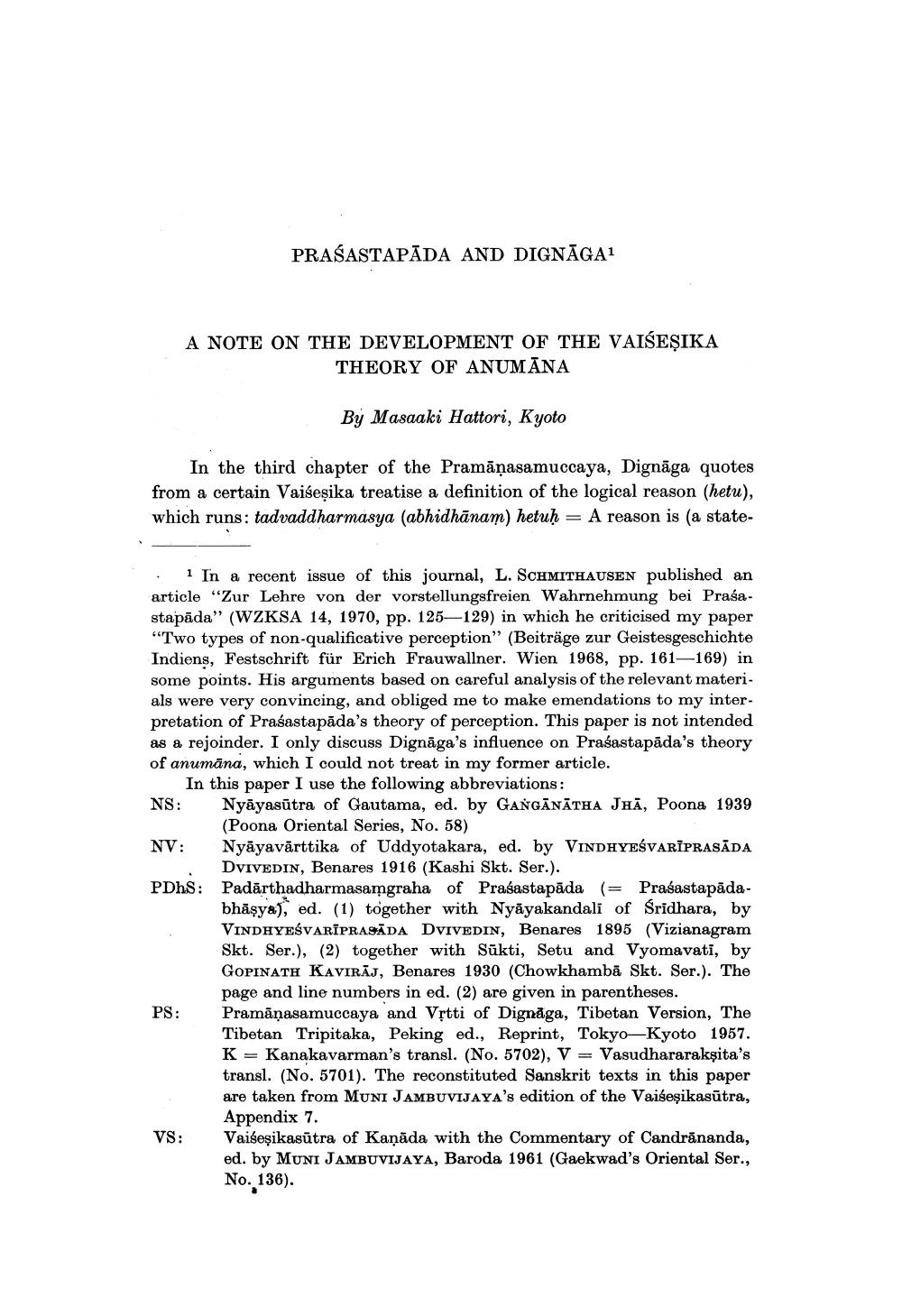________________
PRAŠASTAPĀDA AND DIGNĀGA?
A NOTE ON THE DEVELOPMENT OF THE VAIŠEŞIKA
THEORY OF ANUMĀNA
By Masaaki Hattori, Kyoto
In the third chapter of the Pramāṇasamuccaya, Dignāga quotes from a certain Vaiseșika treatise a definition of the logical reason (hetu), which runs: tadvaddharmasya (abhidhānam) hetuh = A reason is (a state
. In a recent issue of this journal, L. SCHMITHAUSEN published an article "Zur Lehre von der vorstellungsfreien Wahrnehmung bei Prasastapāda" (WZKSA 14, 1970, pp. 125—129) in which he criticised my paper "Two types of non-qualificative perception" (Beiträge zur Geistesgeschichte Indiens, Festschrift für Erich Frauwallner. Wien 1968, pp. 161–169) in some points. His arguments based on careful analysis of the relevant materials were very convincing, and obliged me to make emendations to my interpretation of Prasastapāda's theory of perception. This paper is not intended as a rejoinder. I only discuss Dignāga's influence on Prasastapāda's theory of anumāna, which I could not treat in my former article.
In this paper I use the following abbreviations: NS: Nyāyasūtra of Gautama, ed. by GANGĀNĀTHA JHĀ, Poona 1939
(Poona Oriental Series, No. 58) NV: Nyāyavārttika of Uddyotakara, ed. by VINDHYEŚVARIPRASĀDA
DVIVEDIN, Benares 1916 (Kashi Skt. Ser.). PDhS: Padārthadharmasamgraha of Prasastapāda (= Prasastapāda
bhāşya), ed. (1) together with Nyāyakandali of Sridhara, by VINDHYEŚVARIPRASĀDA DVIVEDIN, Benares 1895 (Vizianagram Skt. Ser.), (2) together with Sūkti, Setu and Vyomavati, by GOPINATH KAVIRĀJ, Benares 1930 (Chowkhambā Skt. Ser.). The page and line numbers in ed. (2) are given in parentheses. Pramāṇasamuccaya and Vștti of Dignāga, Tibetan Version, The Tibetan Tripitaka, Peking ed., Reprint, Tokyo-Kyoto 1957. K = Kanakavarman's transl. (No. 5702), V = Vasudhararakṣita's transl. (No. 5701). The reconstituted Sanskrit texts in this paper are taken from MUNI JAMBUVIJAYA's edition of the Vaiseşikasūtra,
Appendix 7. VS:
Vaišeşikasūtra of Kaņāda with the Commentary of Candrānanda, ed. by MUNI JAMBUVIJAYA, Baroda 1961 (Gaekwad's Oriental Ser., No. 136).
PS:




